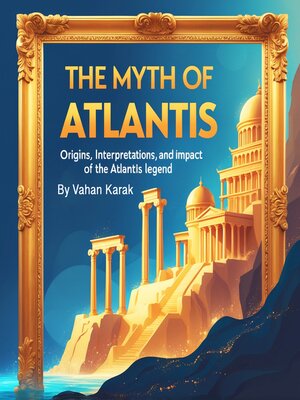The Myth of Atlantis
audiobook (Unabridged) ∣ Origins, Interpretations, and Impact of the Atlantis Legend
By Vahan Karak

Sign up to save your library
With an OverDrive account, you can save your favorite libraries for at-a-glance information about availability. Find out more about OverDrive accounts.
Find this title in Libby, the library reading app by OverDrive.



Search for a digital library with this title
Title found at these libraries:
| Library Name | Distance |
|---|---|
| Loading... |
This audiobook is narrated by a digital voice.
The story of Atlantis begins not in the depths of the ocean or in the ruins of some forgotten archaeological site, but in the philosophical dialogues of ancient Athens. Around 360 BCE, the Greek philosopher Plato introduced the world to a tale that would captivate human imagination for over two millennia. In his dialogues "Timaeus" and "Critias," Plato described a powerful and advanced civilization that existed nine thousand years before his own time, only to vanish beneath the waves in a single day and night of catastrophic destruction.
Plato's account was remarkably detailed for what many scholars believe was an invented allegory. He described Atlantis as a large island located beyond the Pillars of Hercules, what we now know as the Strait of Gibraltar. The island was said to be larger than Libya and Asia combined, though the exact meaning of these geographical references in Plato's time remains a subject of scholarly debate. According to the philosopher, this island was the center of a vast empire that controlled much of the western Mediterranean and had even attempted to invade Athens and Egypt.
The Atlanteans, as Plato described them, were descendants of the sea god Poseidon and a mortal woman named Cleito. Poseidon divided the island among his ten sons, with the eldest, Atlas, becoming the primary ruler and giving his name to both the island and the surrounding ocean. The capital city was an architectural marvel, consisting of alternating rings of land and water connected by bridges and tunnels. At the center stood a magnificent temple dedicated to Poseidon, adorned with gold, silver, and the mysterious metal orichalcum, which was said to be second only to gold in value.







